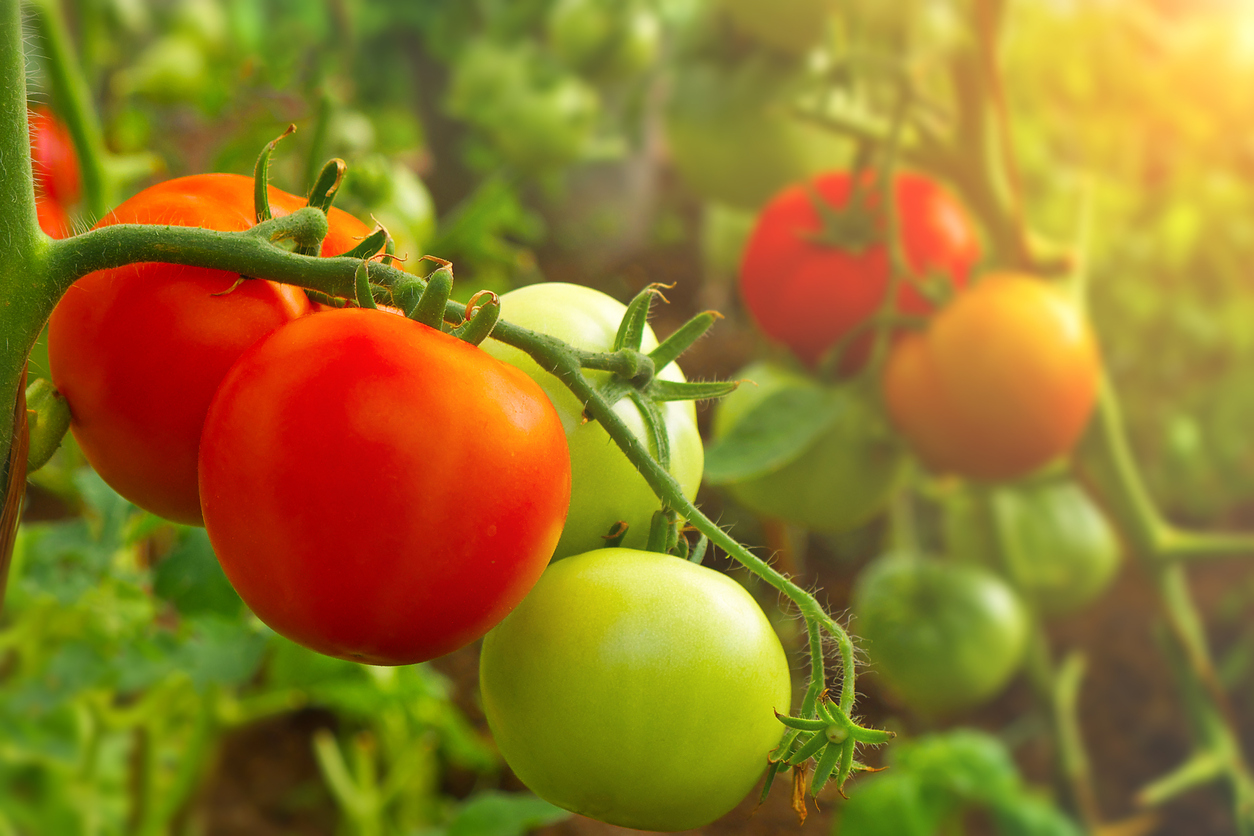
Edited Tomatoes Produce More Sunshine Vitamins
June 1, 2022| |
John Innes Centre (JIC) scientists used CRISPR-Cas9 to shut off a molecule in tomato plants and increase the concentration of provitamin D3 in the fruits and leaves. The study, published in Nature Plants, provides a simple solution to the increasing number of individuals suffering from vitamin D insufficiency worldwide.
Vitamin D is naturally produced in human bodies after the skin is exposed to the UVB light of the sun, thus it is known as the sunshine vitamin. However, the major source of vitamin D precursors is food. Vitamin D insufficiency has been linked to increased severity of COVID-19 infection, higher risk of cancer, dementia, and several other diseases. Thus, the JIC researchers aimed to boost the provitamin D3 in tomato plants for producing plant-based vitamin D3 supplements or food fortification.
Using CRISPR-Cas9, the research team switched off the Sl7-DR2 enzyme to enable the accumulation of provitamin D3 7-dehydrocholesterol (7DHC). This led to a substantial increase of provitaminD3 in the leaves and fruits of edited plants. The edited plants were exposed to UVB light and the 7DHC was successfully converted into vitamin D. Sundrying the edited tomatoes could further boost the amount of vitamin D.
Read the press release from JIC.
| |
You might also like:
- Japan Launches World's First Genome-Edited Tomato
- Pocket K No. 54: Plant Breeding Innovation: CRISPR-Cas9
- Breaking Barriers with Breeding: A Primer on New Breeding Innovations for Food Security
Biotech Updates is a weekly newsletter of ISAAA, a not-for-profit organization. It is distributed for free to over 22,000 subscribers worldwide to inform them about the key developments in biosciences, especially in biotechnology. Your support will help us in our mission to feed the world with knowledge. You can help by donating as little as $10.
-
See more articles:
-
News from Around the World
- FSANZ Calls for Comments on Food Derived from GM Canola
- Genomes of 418 Canola Varieties Identify Genes for Yield Improvement
- Nina Gloriani, One of Asian Scientist 100
- New Zealand’s Food Market to Remain Steady Upon Entry of GM Crops and Foods -Study
- DA-PhilRice Names First 7 Provinces to Sow Golden Rice Seeds
- First Sowing of Genetically Edited Camelina at Rothamsted Research under New UK Regulations
- UK Government Sends Precision Breeding Bill to Parliament; JIC Welcomes Move
-
Research Highlights
- HT Cotton Not Harmful to Arthropod Insects According to Chinese Study
-
Plant
- Texas A&M AgriLife Researchers Use CRISPR Technology to Modify Potato Starch
- Controllable Auto-Excision Now Possible with CRISPR-Cas9
- Edited Tomatoes Produce More Sunshine Vitamins
- CRISPR-Combo Edits and Regulates Genes at the Same Time
-
Read the latest: - Biotech Updates (January 28, 2026)
- Gene Editing Supplement (January 28, 2026)
- Gene Drive Supplement (February 22, 2023)
-
Subscribe to BU: - Share
- Tweet

